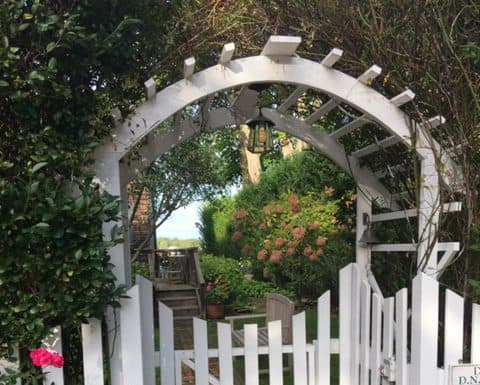The parable of the bridesmaids follows Jesus’ warnings about the end when the faithful will be hated by the world and many will fall away from the faith. This parable teaches all followers of Jesus the importance of vigilance in an uncertain time and illustrates how one is able to “endure to the end”.
In this story, the bridesmaids would await the arrival of the bridegroom and greet him with a procession of light in the darkness. The bridesmaids are waiting either at the brides’ home for the groom to come and fetch her or at the home of the groom’s family where the wedding would take place. All the maids have large torches or lamps. All bridesmaids are waiting with their lamps lit in eager expectation of the groom’s appearance.
However, he is delayed. It is not uncommon because there could be last minute negotiations between the groom and the bride’s relatives over the gifts exchanged. The text doesn’t really explain the delay. The parable compares to the parable of the two servants, the parable of the talents and Jesus’ warning “Therefore you also must be ready for the Son of Man is coming at an unexpected hour”.
The delay of the groom and the lateness of the hour, all the bridesmaids have fallen asleep. The wise bridesmaids brought extra oil. for their lamps. But both groups knew that the groom was coming and waited with their lamps burning, but only half considered that the wait in the darkness might be longer than anticipated.
The groom’s arrival was announced and the bridesmaids set about trimming and preparing their lamps for the procession. The foolish bridesmaids discovered they were running out of oil and asked the five wise bridesmaids to lend their extra oil. If they gave away their oil, they would not have enough. Then what would become of the processional?
When the foolish were away making arrangements that should have been made already, the groom arrived. The procession occurred without the foolish bridesmaids, and the banquet began.
The foolish returned, ready for the processional. They knocked on the door of the house, but their entrance to the wedding banquet was denied by the groom. They missed the grand procession.
These bridesmaids were chosen to accompany the bride and groom, their role as bridesmaids did not guarantee them a place at the banquet. They were shut out of the banquet. The maids’ plea recalls Jesus’ warning that not everyone who cries “Lord, Lord” will enter the kingdom of heaven.
Verse 13 sums up the parable. “Keep awake” might be translated as “Stay Woke”. The bridegroom’s arrival is certain. But the uncertainty of his arrival suggests that we must always be on guard. The earliest readers of this Gospel have already entered the dark days after the crucifixion and resurrection and have begun waiting for Christ’s return. This parable challenges them to be vigilant and live in anticipation of the Lord’s coming.
Many may find themselves secretly sympathetic to the foolish maidens. Do we as the church, really live as though the bridegroom’s arrival is certain? Have become caught up in trying to determine the day and the hour of have we let our lamps run out of oil. To “Stay Woke” means for the us to do the tasks that we have been appointed to do in preparation for the Master’s coming. In Matthew’s Gospel, those tasks include bearing witness to God’s kingdom by welcoming the stranger, feeding the hungry, visiting the sick and imprisoned and making disciples in all the world.
Peace, Pastor Nelda
Hope to see you in worship, in person or online.
Recent News Feed
SCHOOL NEWS
Local Weather
Kennedale
scattered clouds
72.9
°
F
74.1
°
70.7
°
90 %
1.9mph
40 %
Mon
94
°
Tue
88
°
Wed
86
°
Thu
90
°
Fri
92
°
Fellowhship Academy
Sports
2025 State 4A D2 Champions Kennedale Wildcats
State finals in pictures via University Interscholastic League
Kennedale Life
Columnist Corner
Deanna's Art
Why Community Matters
What is community? By definition, it is a group of people coming together over shared values and ideas. Lately, in our society that seems to be harder and harder to find. In an effort to be our true selves and explore our own beliefs,...
Counselor Susan's Couch
Suicide Prevention Week in the K.I.S.D. Intended to Raise Awareness, Spark Conversation
The week of September 6th through September 9th is being recognized and promoted as Suicide Prevention Week throughout the K.I.S.D. and students were encouraged to wear varying outfits and apparel items to align with themed days, all designed to raise awareness, prompt conversation, and...
COVID-19 vs. the Big 4 (what will actually kill you) Part 1
COVID-19 vs. the Big 4 (what will actually kill you) Part 1
By Guest Writer:
Jonathan Royston
We opened our gym, Dissent Athletics, on February 7th of 2020. About six weeks later, our gym, Kennedale, and the entire Nation shut down due to the COVID-19 virus. We...
The New Year and Resolutions
Welcome to the new year 2022!
I pray and hope this new year goes well for everyone. May the Lord crown this year with His goodness for us, and may our carts overflow with abundance of blessings (Psalm 65:11).
As another year begins , we have...
Five Ways to Cope with COVID Confinement
About 7 weeks ago our world changed. Life as we know it stopped. Schools closed. Restaurants closed. Bars closed. Gyms closed. The term “social distancing” became in vogue. Walking into a retail establishment with a mask on went from suspicious to requested. Diagnoses, prognoses,...
Movie Critic
The Best (in Film) for 2020… and the Worst
While I wish that I could say the past year will be best-remembered for all of the wonderful movies I had the pleasure of seeing, the truth is simply this: most were either average or barely above average, in my opinion, and one was...
Rhonda's Local Real Estate
Show Me the Real Estate Blog
So.....Real Estate.
Well. The new year has finally come upon us, and so far it doesn’t seem any less weird than 2020. So what does that mean for your most expensive investment? What does it mean if you're looking to buy your most expensive investment?...
Market priced senior housing designed around “pocket neighborhoods” coming to Kennedale
At the last Kennedale City Council held on September 17, the Council approved a new housing development for 439 Mansfield Cardinal between the Brookstone Estates and the Oakcrest Apartments and down from the Burger Box.
Full agenda available @ https://kennedaletx.civicclerk.com/Web/Player.aspx?id=2180&key=-1&mod=-1&mk=-1&nov=0
The "Cardinal Addition" will be designed...
Keeping Kennedale up to date in Real Estate
Real Estate is always such an interesting source of conversation, because it is of interest to just about everyone, whether you are buying, selling or investing. Our market here in Kennedale is a strong one, and as residents, you can be proud to call Kennedale home in a town that strives hard to make this a great place to live. In a new Gallup survey, only 21% of Americans think stocks or mutual funds are the best long-term investments; Real Estate came in as the most favored long-term investment, a position it has held since 2013.
LATEST NEWS
All
- All
- Archive
- Art
- Business
- City Government
- Councilman Chris Pugh's Corner
- Dating
- District Annoucements
- Event Calendar
- Fellowship Academy
- History
- Kenendale Jr High Student Publication
- kids
- KISD
- KISD School Board Annoucement
- KISD Sports
- Life
- Local
- Local Business
- Local Elections
- Local News
- Local Schools
- Mayor's Notes
- Medical
- Mental Health
- Movies & Books
- National
- Obituaries
- Opinion
- Pets
- Police Blotter
- Press Release
- Real Estate
- religious
- Revival Worship Center
- Sports
- Superintendent Corner
- Taylor's Corner
- Technology
- Theatre






































Comments are closed.